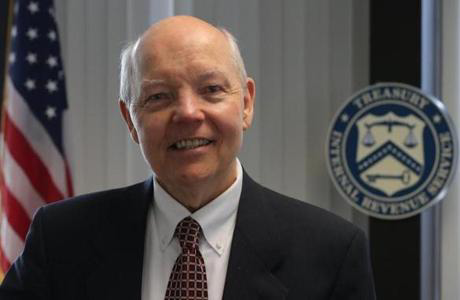IRS Commissioner Gives Tax Season Briefing to AICPA
IRS Commissioner John Koskinen has been making the rounds. After giving a speech at the Council for Electronic Revenue Communication Advancement (CERCA) Fall Meeting on November 2 and the Security Summit Press Briefing on November 3, Koskinen ...
Nov. 28, 2016

IRS Commissioner John Koskinen has been making the rounds. After giving a speech at the Council for Electronic Revenue Communication Advancement (CERCA) Fall Meeting on November 2 and the Security Summit Press Briefing on November 3, Koskinen delivered another address to the American Institute for Certified Public Accountants (AICPA) National Tax Conference in Washington D.C. on November 15. While taking some pats on the back, the IRS’ head honcho didn’t hesitate to fire from the hip.
First, Koskinen assured attendees that the upcoming tax-filing season will begin without any significant delays, even in the wake of major changes included in the Protecting Americans from Tax Hikes (PATH) Act. He also spoke about strides being taken to protect sensitive taxpayer data from cyber thieves. But Koskinen also cautioned that the IRS is being asked to do more with less, a constant refrain in recent years.
Although he didn’t provide the exact date, the IRS Commissioner said that tax filings can begin before the end of January, due in part to timely extensions of certain provisions under the PATH Act. However, Koskinen did allow that the PATH Act could also result in delayed refunds for certain taxpayers. For instance, refunds for taxpayers requesting the Earned Income Tax Credit (EITC) or additional Child Tax Credit (CTC) can’t be claimed until February 15, 2017. Nevertheless, he urged tax return preparers to forge ahead with filing returns as soon as possible.
Koskinen spoke about various measures designed to deter frauds involving theft of personal information, including the requirement for Forms W-2 to be filed with the Social Security Administration (SSA) by January 31, 2017 and expanded use of a 16-digit code for W-2s. He also hoped to build on campaigns for improving telephone service to taxpayers and practitioners. And the IRS Commissioner lauded the work of the Security Summit, a collaborative effort among representatives of preparers, the tax preparation software industry, financial institutions and state tax administrators. Accordingly, he noted a 50 percent drop in filings claiming identity theft.
But not all the news is rosy. Crooks are relying on increasingly sophisticated techniques to access taxpayer information and use it for fraudulent means.
“It’s no longer beanbag we’re playing here, but a serious, ongoing battle,” said Koskinen. “If they can hack into your systems and get the data about your clients, they are better able to file a more effective-looking fraudulent return.”
Of course, it’s often the money that matters, and Koskinen hasn’t backed off his complaints about IRS funding. He cited a shrinking budget, down $900 million from six years ago, as well as 17,000 fewer IRS staffers, as impediments to doing his job. “We have places where we had eight people doing a job and now we have two,” said the IRS Commissioner. “This is at a point that is critical.” To prove his point, Koskinen referred to an estimated $5 billion in tax revenue that is owed to the IRS but hasn’t been collected because the resources simply aren’t available.
It will be interesting to see how the incoming Trump administration deals with the problems indicated by the IRS commissioner. Stay tuned.
